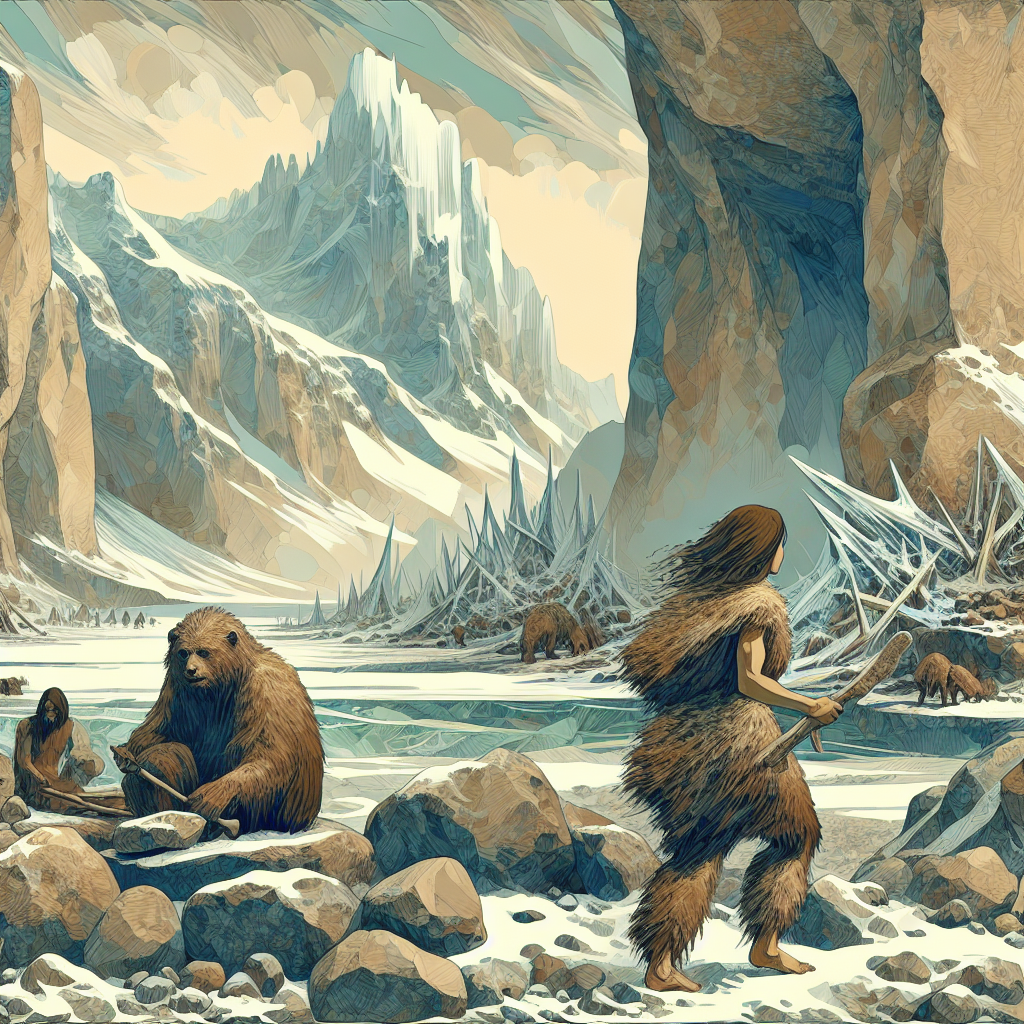Title: Journey into Prehistory: A Reflective Analysis of Jean M. Auel’s "The Clan of the Cave Bear"
Introduction:
Published in 1980, Jean M. Auel’s "The Clan of the Cave Bear" marked the beginning of the Earth’s Children series, capturing readers with its vivid depiction of prehistoric life. Auel’s work, a blend of meticulous research and imaginative storytelling, brings the Paleolithic era to life, providing an extraordinary setting for exploring universal human experiences. The book’s significance lies in its pioneering role in the genre of prehistoric fiction, offering not only entertainment but also insight into human evolution and cultures long extinct.
Author’s Context and Literary Significance:
Jean M. Auel, a writer whose work is characterized by extensive research and attention to detail, embarked on a journey that would span six volumes, chronicling the life of Ayla, a girl who bridges two worlds—those of the Neanderthals and the Cro-Magnons. "The Clan of the Cave Bear," the inaugural book of the series, established Auel as a formidable voice in historical fiction. Her ability to humanize early hominids and create an emotional narrative around prehistoric societal structures is a testament to her skill and commitment as an author.
Main Themes:
Central to the novel are themes of survival, identity, and coexistence. Auel delves into the intricacies of social dynamics, exploring how Ayla, an orphaned Cro-Magnon girl raised by Neanderthals, navigates a life of struggle and adaptation. The theme of belonging versus alienation is ever-present as Ayla grapples with her dual identity – one that is physically distinct from the members of her Clan and often ostracized for her differences.
Another prominent theme is that of gender roles and the inherent power dynamics within the Clan. Auel poignantly addresses the limitations placed on Ayla due to her gender and differing cultural norms, painting a picture of resistance and empowerment as she challenges the status quo.
Character Development:
Ayla, the protagonist, is a character of remarkable resilience and complexity. From the onset, Auel paints her as an empathetic bridge between two species. Her journey from vulnerability to self-empowerment is a central narrative arc. The careful depiction of her intuition and intelligence showcases Auel’s admiration for human adaptability and ingenuity.
The Clan members, particularly the medicine woman Iza and the Mog-ur, Creb, are portrayed with depth and nuance. Through them, Auel illustrates a complex society guided by tradition and spiritual beliefs. Iza’s nurturing nature and Creb’s conflicted but loving regard for Ayla provide emotional anchors in a harsh world, contributing layers to the story’s emotional depth.
Narrative Techniques:
Auel employs rich, descriptive prose to immerse readers in the Ice Age environment. Her use of meticulous detail—from the herbal lore to hunting practices—provides an authentic backdrop that enhances the narrative’s realism. The third-person omniscient perspective allows Auel to delve into the thoughts and emotions of multiple characters, bridging the gap between modern readers and prehistoric individuals.
Key chapters offer significant emotional and thematic development. For instance, Ayla’s near-exile showcases her internal struggle and burgeoning independence, while her hidden skills in tool-making and innovation underscore her role as a catalyst for change within the Clan.
Cultural, Social, and Historical Reflections:
"The Clan of the Cave Bear" offers insights into early human societies, highlighting both cultural continuity and divergence. Auel’s portrayal of Neanderthals challenges stereotypes by presenting them as complex beings with their own social structures and spiritual beliefs. Her depiction reflects broader debates within anthropology and paleoanthropology, urging readers to reconsider assumptions about ‘primitive’ ancestors.
The novel also subtly comments on contemporary social issues, such as gender inequality and intercultural tensions, by drawing parallels to Ayla’s experiences. Auel’s exploration of these themes in a prehistoric setting provides a unique lens through which to view modern societal constructs.
Legacy and Influence:
Auel’s work paved the way for similar explorations in prehistoric fiction, inspiring authors and filmmakers alike. The book’s influence extends into popular culture, contributing to a renewed interest in human ancestry and the mysteries of prehistoric life. It has fostered discussions about empathy and understanding across cultural and temporal divides.
Reflective Questions and Takeaways:
As we consider "The Clan of the Cave Bear" today, its relevance endures in reflecting on what it means to exist in a world of diverse cultures and perspectives. Ayla’s story prompts several contemplative questions: How do we define identity in a world that often prioritizes conformity over individual differences? In what ways can we draw from ancient wisdom to navigate current social and environmental challenges?
Auel’s narrative invites readers to reflect on the resilience of the human spirit and the capacity for compassion across perceived boundaries. Her depiction of a distant past echoes into our present, urging us to embrace change and foster understanding in our own complex societies.
In sum, Jean M. Auel’s "The Clan of the Cave Bear" is not merely a tale of survival but a profound exploration of identity, culture, and humanity. Its blend of historical veracity and narrative imagination continues to captivate and inspire, making it a cornerstone of prehistoric fiction with lasting relevance.
Got more questions? Our personalized Book Explorer AI assistant is here to help. Click here to start a conversation!
[Advertisement]
Looking to find deeper meaning in the books you love? Discover how ANY book relates to positive biblical principles with Books and Scripture GPT‘ from BGodInspired.com. Click here to explore the connections that might surprise you!
[Advertisement]

